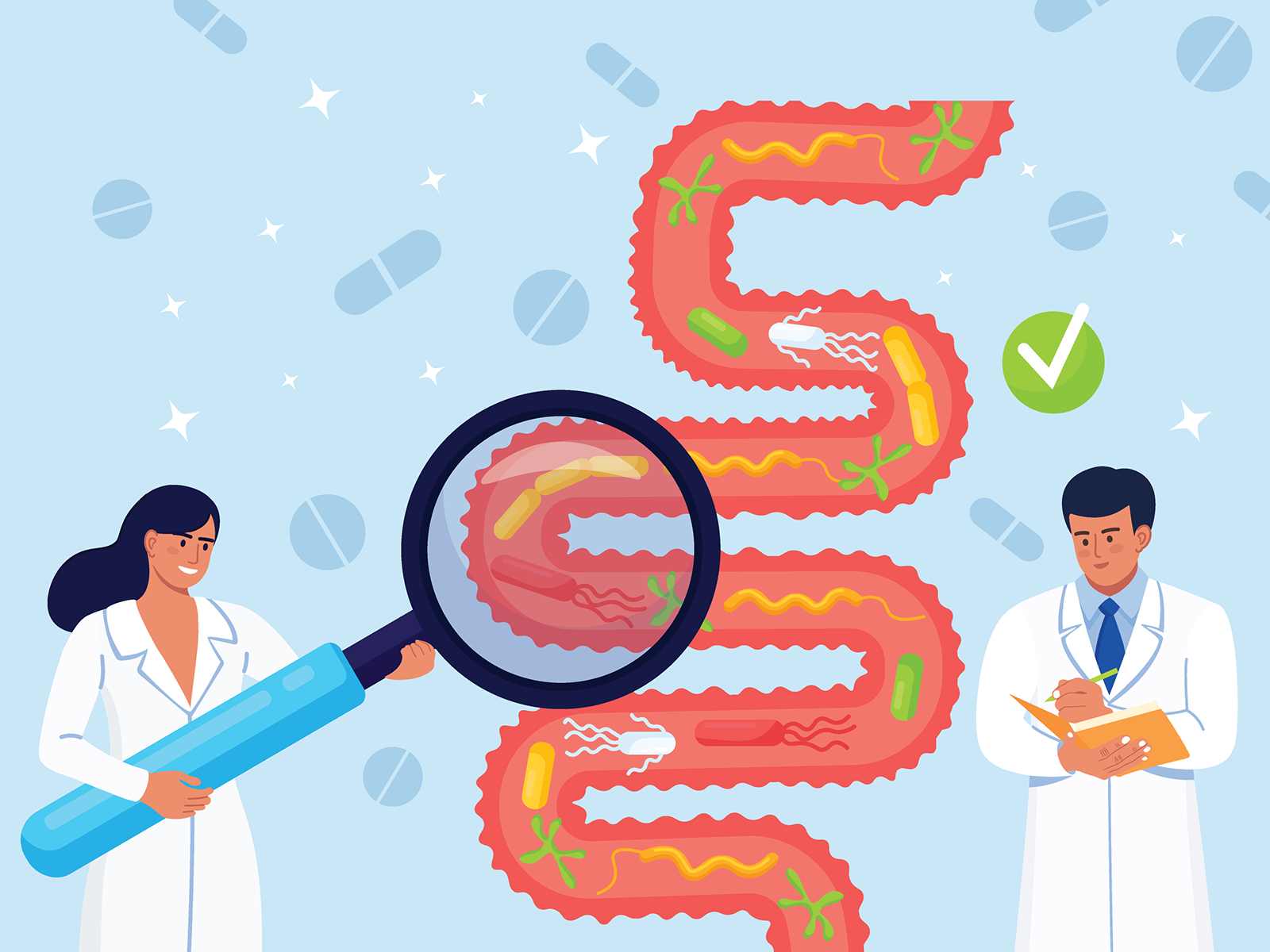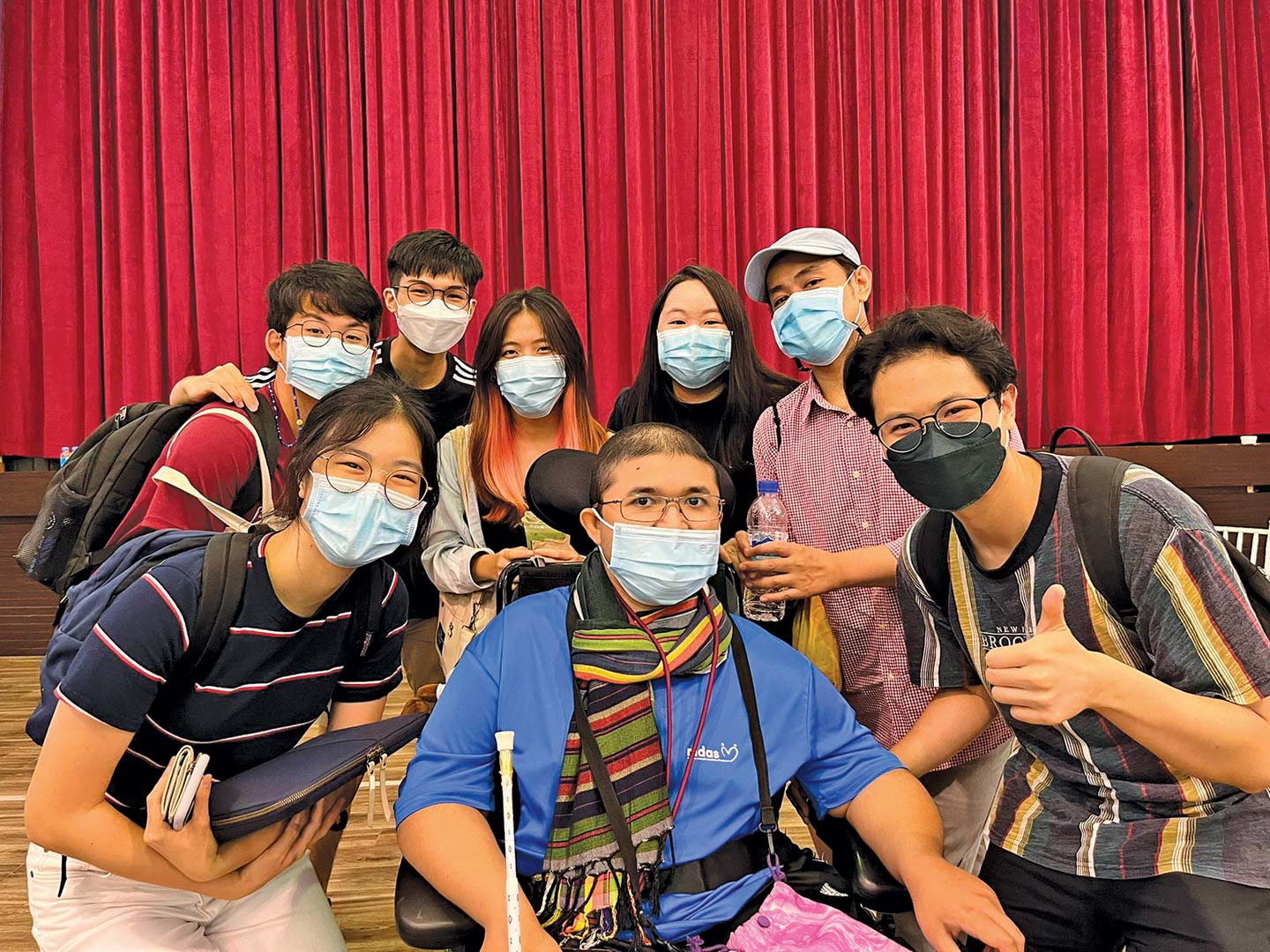
Issue 45
Jan 2023
ETHICALLY SPEAKING
By Professor Julian Savulescu, Chen Su Lan Centennial Professorship in Medical Ethics, Director, Centre for Biomedical Ethics, NUS Medicine, and Professor Dominic Wilkinson, Director of Medical Ethics at the Oxford Uehiro Centre for Practical Ethics

There have been media reports about some parents who are refusing blood transfusions for their children if the blood comes from a person vaccinated against COVID.
In a recent case, New Zealand parents refused consent for major surgery for their six-month old baby, (referred to in the reports as “Baby W”). Baby W had a complex congenital heart abnormality and the surgery would require blood transfusion. The parents were apparently concerned about their baby being exposed to “spike protein” from vaccinated blood. However, the New Zealand High Court awarded temporary guardianship to treating doctors and surgery has since taken place1. Similar refusals have occurred in the US2 and Canada3. How should we respond to such cases? Were the courts right to intervene?
We recently conducted a meta-analysis of nap studies performed to date to clarify how the age of the napper, nap duration, nap timing as well as the preceding night’s sleep affect the cognitive benefits of napping.
Can parents refuse surgery or transfusion?
The first point to note is that although parents are usually closely involved in decisions about medical treatment for their children, there are limits. Most societies don’t think that parents should be allowed to make decisions that would risk serious harm to their children. Courts in the past have overruled parents who refuse life-saving treatment such as chemotherapy4, operations or blood transfusion5. But actually, W’s parents weren’t refusing blood or surgery. They just didn’t want blood from a particular source.
Are the parents’ concerns justified?
W’s parents’ concerns have been attributed to “misinformation”3. There are no known risks6 from receiving blood from vaccinated donors. Countries have very stringent safety controls on their blood supply to protect recipients from infection. They involve extensive questioning of donors about risk factors, then numerous tests for infection.The parents’ concern about the ‘spike protein’ in the vaccine have no scientific basis. There is no evidence7 that the protein generated by the vaccine is harmful. It is also extremely unlikely to be present in the blood of someone who has been vaccinated more than two weeks earlier.8
However, even if doctors do not share W’s parents’ views, it doesn’t automatically follow that parents should be overruled. It wouldn’t be harmful to baby W to have blood from an unvaccinated donor.
It is an important principle of medical ethics that doctors should pay attention to the views and values of patients. They should do that even if the doctor thinks that the patient is mistaken or that their views are irrational.”
Religious accommodation and justice
It is an important principle of medical ethics that doctors should pay attention to the views and values of patients. They should do that even if the doctor thinks that the patient is mistaken or that their views are irrational. That includes, for example, religious values. So an atheist doctor should try to respect and accommodate a religious patient’s requests for treatment that meets the requirements of their spiritual teaching.
But it also includes other non-religious values—for example patients who are vegan or concerned about the climate, or wishing to boycott products from a particular country. Or patients may have particular medical concerns. For example, a patient may have a concern about the risk of acquiring a newly detected virus like monkeypox. Again, doctors should potentially try to accommodate those requests, even if they do not share the concerns.
However, there is one good reason to deny such requests, even if reasonable: distributive justice.
Distributive justice is the principle of allocating limited resources fairly. Health resources constitute a limited pie and everyone is only entitled to his or her fair share. This might involve equal shares, or giving priority to the worst off, or maximising the health gains from these resources, and so on.

Distributive justice is relevant in at least three ways.
Firstly, patients do not have the right to demand interventions which are not possible. This has been given as a reason for denying antivaxxers’ requests. For example, at the present time the vaccination status of blood donors is not recorded routinely. There is no way to identify blood that would be acceptable to W’s parents3. However, this wouldn’t be an absolute barrier. Blood could be labelled and distributed in a way that respects patient values and preferences.9
A second reason is more important: this would potentially be costly and resource-intensive to implement. Meeting the logistical challenges of identifying blood that would be acceptable to W’s parents (or other recipients) would divert limited resources away from the care of other patients.
There is a third concern that is a significant one for blood services: the security of the blood supply. Allowing parents or patients to pick and choose who they are happy to receive blood from would set a dangerous precedent.
In the past, African Americans were identified as “high risk” and such labelling can stigmatise and exacerbate discrimination against minority groups. It would be extremely problematic to permit some individuals to choose donors from a particular religious, political or ethnic background. It may undermine the altruism and solidarity upon which the blood donation system is based.9
Compromise? Directed donation
One option that might allow W’s parents’ views to be respected without requiring major changes to the usual process of blood donation—would be through something called “directed donation”.
This is the term used for someone donating blood directly to a specific individual. In this case, W’s family members or friends could have donated blood for the surgery (assuming that they had not had the COVID vaccine and were of the right blood group).
However, there are several reasons that may explain why that was not pursued in this case.
First, directed donation is associated with slightly higher medical risks for the recipient (for example of infection, of developing antibodies, and of a rare problem called “graft versus host disease”)10. These risks are relatively small, so it is not clear that would rule out directed donation.
Second, and more importantly, it is not clear that it would be practical in a case like baby W’s. Directed donation requires extra time to collect and screen the donated blood. For major heart bypass surgery, the surgery typically requires multiple units of blood products of different types11. It is not clear that it would be feasible to collect enough of the right kind of blood for the operation in time for it to take place. This would also likely require significant additional time and resources to undertake the collection and screening.
Finally, doctors may have been unwilling to take extra measures to arrange directed donation because this may appear to be offering implicit support for a problematic view. It is not simply that doctors do not share the parents’ views—they likely regard the view as harmful. Misinformation about vaccines in general and the COVID vaccine in particular has caused and continues to cause preventable serious illness and death. Individual doctors, or health systems may choose not to accommodate vaccine sceptics, in case this provides any tacit support for such views. As a parallel example, doctors may refuse to support parents who wish to arrange directed donation from people only of a particular racial or ethnic group because doing so would make the doctors complicit in racism.
Conclusion
Cases like that of baby W are uncommon. However, they raise important questions about how much health systems are willing to accommodate patients and parents who reject mainstream views about certain medical treatments. If we allow parents to decline vaccination for their children, it may seem paradoxical that they are not allowed to refuse a blood transfusion from vaccinated donors. However, the consequence of refusing blood transfusion for a seriously ill child is completely different from refusing vaccination in a healthy child. One compromise in some cases may be to allow directed donation so that parents arrange for a family member/friend to give blood to the child. However, as we have pointed out, that will not always be possible. It may also carry some ethical cost.
This article was first published on CNA.
https://www.theguardian.com/world/2022/dec/09/new-zealand-baby-w-case-boy-has-surgery-after-court-gives-doctors-guardianship.
https://www.webmd.com/vaccines/covid-19-vaccine/news/20210817/covid-skeptics-request-blood-transfusions-from-unvaccinated-donors.
https://www.ctvnews.ca/health/coronavirus/covid-19-misinformation-prompts-some-patients-to-refuse-blood-transfusions-from-vaccinated-donors-1.6110333.
https://www.bbc.com/news/world-us-canada-49642662.
https://www.independent.co.uk/news/uk/home-news/jehovahs-witness-blood-transfusion-doctor-judge-ruling-girl-leeds-nhs-trust-religion-a8977066.html.
https://www.healthline.com/health/blood-transfusion-covid-vaccine.
https://fullfact.org/online/conservative-woman-vaccine-scientist-spike-protein/.
https://www.nzblood.co.nz/knowledge-hub/covid-19/covid-19-vaccines/.
https://www.ncbi.nlm.nih.gov/pmc/articles/PMC8653055/.
https://www.ncbi.nlm.nih.gov/pmc/articles/PMC8442217/.
https://www.clinicalguidelines.scot.nhs.uk/nhsggc-guidelines/nhsggc-guidelines/cardiac/paediatric-cardiac-thoracic-surgery-and-cardiology-ordering-schedule-for-blood-blood-products/.
More from this issue
A WORLD IN A GRAIN OF SAND
Can the Majestic Gut Microbiome Reveal Lessons on Leadership?



